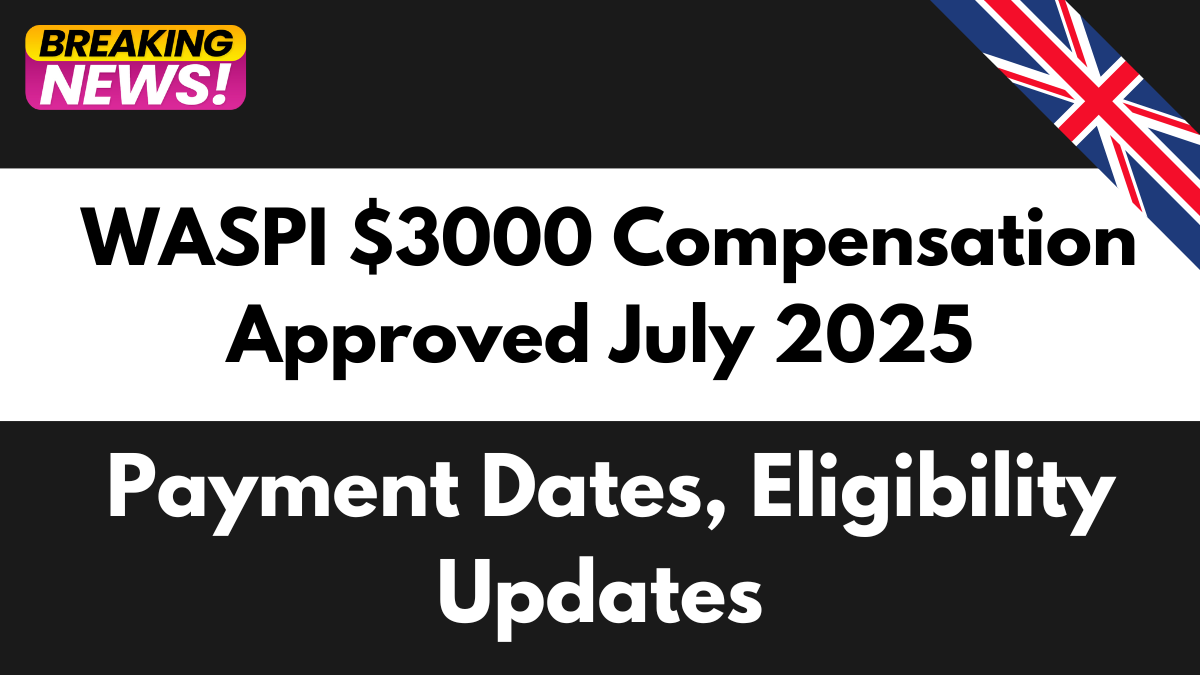In a landmark move acknowledging years of oversight, the UK government has confirmed a £3,000 compensation payment for women born in the 1950s who were adversely affected by abrupt changes to the state pension age. This decision follows persistent campaigning by the Women Against State Pension Inequality (WASPI) group, which has long argued that the Department for Work and Pensions (DWP) failed to provide adequate notice of these legislative shifts. These payments, scheduled to roll out from May through July 2025, serve as partial restitution for the financial and emotional distress endured by the affected cohort.
Many of the women impacted were unaware of the pension age increases until they approached what they had assumed was their retirement age. The Parliamentary and Health Service Ombudsman (PHSO) concluded in 2024 that the DWP’s failure to inform them properly amounted to maladministration. The government’s response is not just a payout, but also an acknowledgment of systemic communication failures that significantly altered thousands of lives.

Table of Contents
Key Details at a Glance
Detail |
Information |
|---|---|
Compensation Amount |
£3,000 |
Eligibility Window |
Born between 6 April 1950 and 5 April 1960 |
Reason for Payment |
Inadequate notice about pension age changes |
Payment Timeline |
May to July 2025 |
Application Required |
No |
Managing Authority |
Department for Work and Pensions (DWP) |
Official Website |
Understanding the Campaign’s Origins and Outcomes
The WASPI campaign was initiated in 2015 as a grassroots response to the lack of transparency and timely communication from the government regarding state pension reforms. Women expecting to retire at 60 found themselves forced to work longer, often without the financial means to bridge the unexpected gap. The emotional toll of having retirement dreams disrupted without warning further compounded the issue.
This movement gained traction over the years, culminating in the 2024 PHSO ruling that found the DWP guilty of maladministration. While the £3,000 compensation does not fully cover the monetary losses these women faced, it represents a vital institutional acknowledgment of the hardships endured. The compensation initiative is a direct consequence of relentless public pressure and political advocacy, illustrating the potential of organized civic engagement.
Eligibility Requirements and How the Payment Will Be Distributed
To qualify for the compensation, individuals must meet specific criteria:
- Born between 6 April 1950 and 5 April 1960
- Resided in the UK during the relevant pension reform periods
- Received inadequate or no notice about changes to their state pension age
Importantly, recipients do not need to apply. The DWP will use its existing records to identify eligible women and contact them via letter, email, or text message. The distribution of funds will occur between May and July 2025. Those who haven’t received any communication by the end of July are advised to contact the Pension Service to ensure their information is up to date.
Preparing for the Compensation Rollout
Even though the payment is automatic, affected women are encouraged to take proactive steps to ensure they receive their entitlement smoothly:
- Verify eligibility: Confirm that your birthdate falls within the specified range.
- Update personal records: Ensure the DWP has your current contact details and banking information.
- Stay informed: Monitor official DWP communications and visit gov.uk for updates.
- Connect with community: Engage with WASPI forums or support networks for the latest information and peer support.
These measures will help avoid administrative delays and ensure a seamless distribution process.
Social and Policy Implications of the Compensation
The decision to offer this payment has broader implications beyond individual financial relief. It sends a strong signal that public institutions must prioritize clear and timely communication. This case may set a precedent for how similar situations are handled in the future and strengthens the role of grassroots movements in influencing national policy.
The £3,000 is more than a symbolic gesture; it restores a measure of dignity to those whose trust in the system was shaken. While it won’t erase the hardships faced, it reaffirms that government accountability and citizen advocacy can coexist productively.
Frequently Asked Questions (FAQ)
Q1: Do I need to apply for the compensation?
No, the DWP will automatically identify and contact eligible recipients.
Q2: When will I receive the payment?
Payments will be made between May and July 2025.
Q3: What if I don’t get a notification?
If you haven’t received any communication by the end of July 2025, contact the Pension Service directly.
Q4: How will I be contacted?
Through post, email, or SMS, using your contact information on file with the DWP.
Q5: Will the compensation affect my benefits or taxes?
Details are still emerging, but the payment is expected to be tax-free. Check the official website for updates.
Q6: Is this a one-time payment?
Yes, the compensation is a one-off payment of £3,000.
Q7: Can I appeal if I’m not selected?
You can contact the DWP for clarification, but no formal appeal process has been outlined.
Q8: Is WASPI still active?
Yes, the campaign continues to advocate for fair treatment and further reforms.
Q9: What if I’ve moved abroad?
Eligibility depends on your residence during the relevant period. Contact DWP for details.
Q10: Where can I find official updates?
Visit https://www.gov.uk for all official announcements.
Click here to learn more




